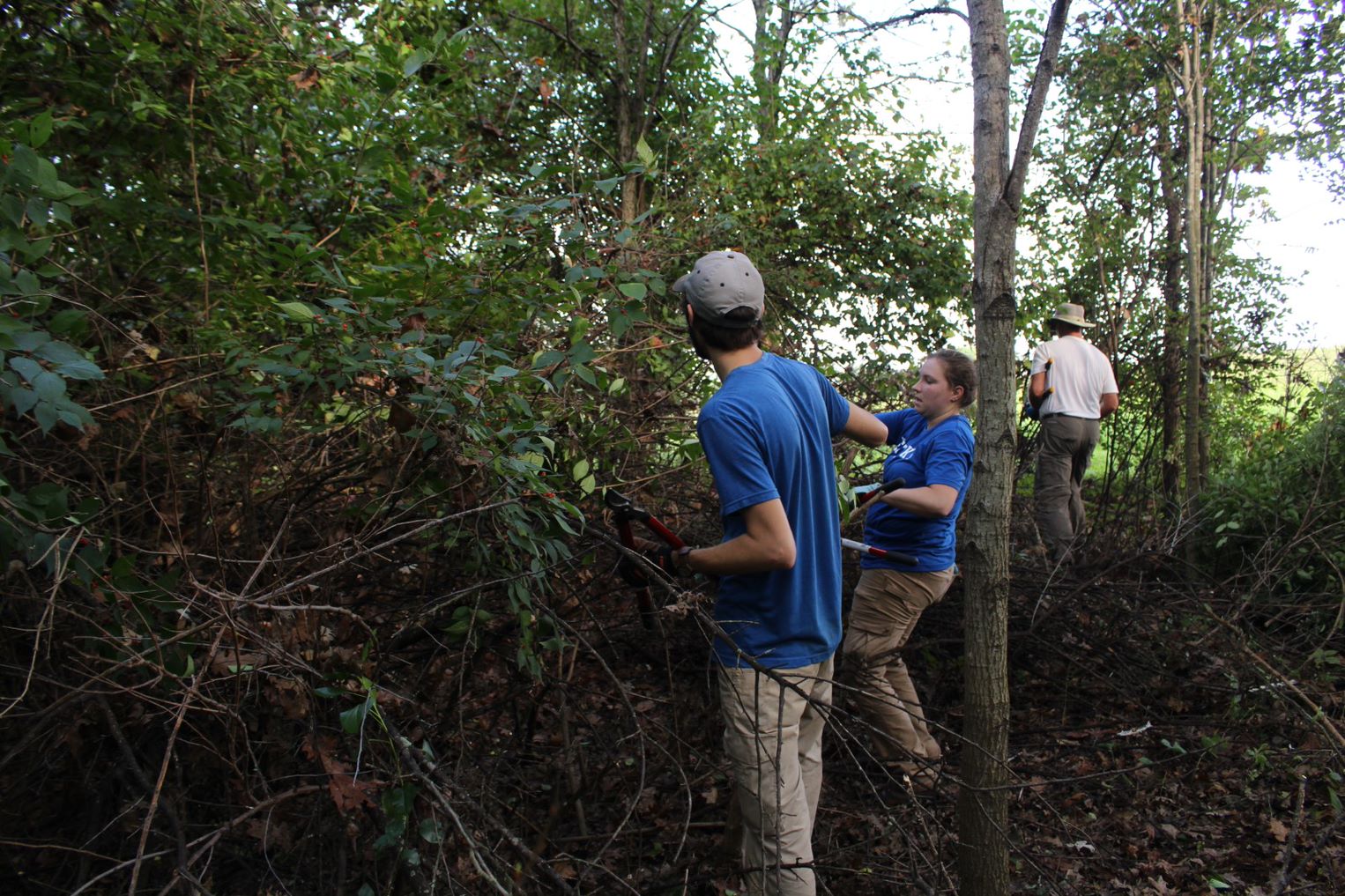UK students team with Lexington for forestry projects
UK students team with Lexington for forestry projects


In the summer of 2020, Kenton Sena, a lecturer in the Lewis Honors College at the University of Kentucky, and his team of undergraduate research assistants surveyed native trees in Lexington, which were planted as part of the city’s Reforest the Bluegrass program. The aim of the project was to evaluate whether the trees successfully established and grew to form a tree canopy.
In the process, the group also found that invasive plants, such as Amur honeysuckle and callery pear, were abundant in the underlying layer of vegetation of the urban forests. Those findings marked the beginning of what could become a new productive partnership between the Lexington-Fayette Urban County Government Department of Urban Forestry and the College of Agriculture, Food and Environment’s Forestry Club.
On Oct. 16, the forestry club helped remove invasive plants from Lexington’s Masterson Station Park during UK CAFE’s Tree Week. The program was the first of a multi-event partnership between LFUCG, UK CAFE and the Lewis Honors College to improve the city’s urban areas.
“I think our workday went really well and was very successful,” said Sena who earned both his master’s and doctorate degrees from CAFE’s Department of Forestry and Natural Resource. “I’m really eager to see some of the projects that can come of a UK partnership with LFUCG Urban Forestry. I think whatever comes of it will be great for Lexington forests.”
The partnership plans to establish at least four annual collaborative programs.
The first project begins in January with another invasive species removal activity. An annual schedule will begin with an early spring invasive species removal project followed by the traditional Reforest the Bluegrass in April which focuses on planting native trees to the area. Every year since 1999, Reforest the Bluegrass has planted trees throughout Lexington, resulting in more than 20 reforested sites around the city by 2020. In early fall, another invasive species removal project will take place.
In late fall, the club will concentrate on a “Nursey Dig and Underplanting Day,” which will focus on digging trees and shrubs from an LFUCG nursery and planting them in select Reforest the Bluegrass sites around the city.
"Underplanting is key in this sort of work,” Sena said. “If you remove invasive plants but don't plant anything in their place, invasive species are likely to grow back. Current research in the field suggests that planting native understory trees and shrubs after removing invasive plants helps improve native species diversity on the site and reduces the likelihood that invasives will grow back.”
From learning different trades and using unique tools, to networking with community members, students benefit from these type of projects.
In the collaboration, students can build their professional network, help address a community issue and practice skills in a real-world context. Undergraduate students participating can interact with graduate students, community members active in local environmental service work, local government employees, university professors and professional arborists.
“Unfortunately, COVID prevented us from participating in a lot of events over the past year and a half,” said Nate Hooven, president of the UK Department of Forestry and Natural Resources Graduate Student Association. “However, we are excited to be collaborating with LFUCG in the future as these events provide opportunities to be active in the Lexington community and gain hands-on experience in forest and invasive species management."
Senna said while it creates a rich space for meeting new people, learning about the community and sharing ideas, it also allows students to help address a real community issue.
“It will take concerted community effort to manage our forests for invasive species,” he said. “Students receive real-world experience in practicing plant identification, using tools like loppers and handsaws to cut invasive species and dragging and piling brush. These programs are a great experiential complement to students’ in-class educational experiences.”
Forestry & Natural Resources

